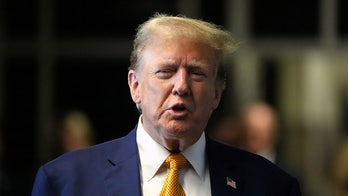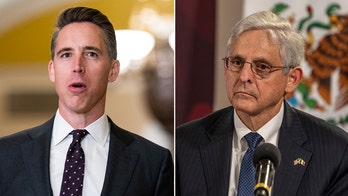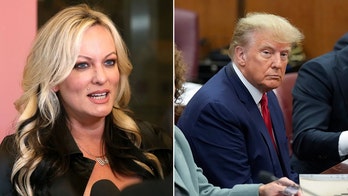In Prince George’s County in Maryland, a teacher uses the school computer to send an email to fellow teachers, encouraging them and others to work the polls in support Gov. Martin O’Malley.
In California, Sen. Barbara Boxer’s office sends a letter to "Government and Social Studies teachers throughout Los Angeles" asking them to recruit students "to earn extra credit or fulfill class volunteer hours" by becoming volunteers in her campaign.
In Cincinnati, three busloads of voting-age students are taken to the local board of elections so they can vote. Once there, they're given sample ballots that contain only names on the Democratic ticket. And once they're finished voting, they're taken out for ice cream.
For the most part, these and other instances of teachers and other public servants using government time and equipment for political purposes -- and sometimes on behalf of a candidate -- have been met with howls of protest, local indignation and occasionally a civil suit.
But according to Hans Von Spakovsky, a former member of the Federal Election Commission (FEC) and now a Heritage Foundation specialist in voting issues, these small acts may actually be federal crimes.
Because virtually all public schools in the nation get federal funding, Von Spakovsky says, teachers and other school employees are covered by the 1939 Hatch Act, which prohibits federal employees from engaging in partisan politics while working.
Whether anyone has actually been prosecuted is unknown. Von Spakovsky said he was unaware of any prosecutions, and the Office of Special Counsel, which prosecutes violations, did not return phone calls.
Similarly, no one is certain just how widespread these possible violations are in the election cycle. Kelly Ceballos of the League of Women Voters, which does extensive voter registration drives at high schools throughout the nation, said she was unaware of any other cases. “It is not something I am aware of,” she said.
But the ones that have surfaced have been troubling.
In California, Boxer's letter to social studies teachers sparked a sharp rebuke from the Howard Jarvis Taxpayers Association, which demanded that schools notify teachers that they could face criminal penalties for involving students in partisan political campaigns during school hours.
The Boxer campaign apologized, acknowledged that the letter “was inappropriate” and said it would no longer conduct outreach to public high schools.
In Prince George's County, Darren Presley, the school's communication director, said he was unaware of any disciplinary action against Catherine Kenny, the teacher behind the mass emailing to get “voters to push for O’Malley if we want to keep our retirement plans.” Presley said the school board is still looking into the matter.
In Cincinnati, the student bus ride sparked a lawsuit, and the school district quickly agreed to stop all conduct that smacked of partisanship and to “comply with all policies of the Cincinnati Public Schools and Ohio law.” But the lawsuit went further, asking that the conduct be “declared a violation of Ohio law.”
On Friday, the Hamilton County Board of Education suspended Virginia Rhodes, the principal of the high school that permitted the students to travel to the board of elections, for failure to provide oversight. It is unclear whether the two-week suspension is without pay. The teacher in the case, Dennis McFadden, has yet to face a disciplinary hearing.
Chris Finney, the attorney who filed suit against the school district, said he was certain that the practice of swaying high school kids to vote Democratic was widespread and "standard operating procedure." He said he has requested records from the school and is considering filing a RICO civil action.
When asked whether it was a Hatch Act violation, he said he was unaware it applied.
"Amazing. What a brilliant idea," he said.




